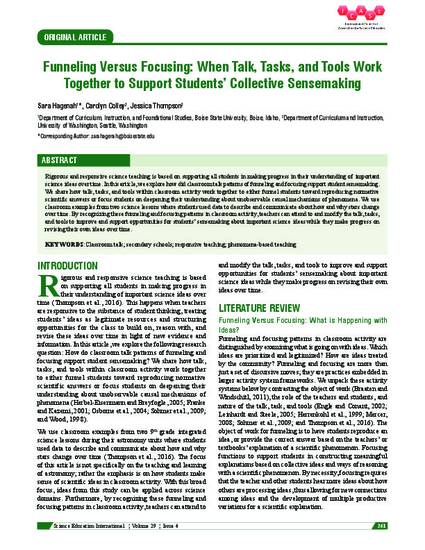
Rigorous and responsive science teaching is based on supporting all students in making progress in their understanding of important science ideas over time. In this article, we explore how did classroom talk patterns of funneling and focusing support student sensemaking. We share how talk, tasks, and tools within classroom activity work together to either funnel students toward reproducing normative scientific answers or focus students on deepening their understanding about unobservable causal mechanisms of phenomena. We use classroom examples from two science lessons where students used data to describe and communicate about how and why stars change over time. By recognizing these funneling and focusing patterns in classroom activity, teachers can attend to and modify the talk, tasks, and tools to improve and support opportunities for students’ sensemaking about important science ideas while they make progress on revising their own ideas over time.
This document was originally published in Science Education International by International Council of Associations for Science Education. Copyright restrictions may apply.
Available at: http://works.bepress.com/sara_hagenah/14/
